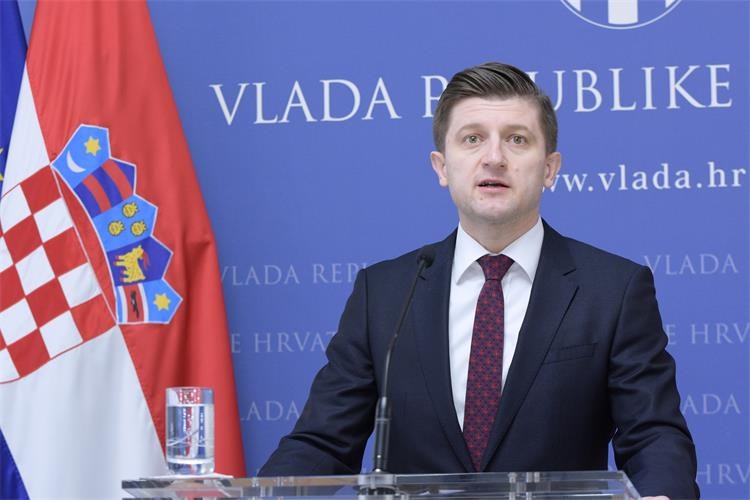- Published: 23.03.2021.
Marić: Confirmation of our credit rating shows government's efforts appreciated
Finance Minister Zdravko Marić said on Tuesday that S&P's confirmation of Croatia's credit rating reflected appreciation of the government's effort to ensure health and economic security during the COVID-19 pandemic and its responsible management of public finances.
"The most important thing is that according to S&P, Croatia's credit rating has been confirmed at the investment grade level with a stable outlook," Marić told a press conference in Government House.
The Standard & Poor's agency on Tuesday released its global ratings and affirmed its 'BBB-" investment credit rating for Croatia'sovereign credit rating, with a stable outlook.
"The outlook is stable because S&P Global Ratings anticipates that Croatia's external buffers and economic recovery prospects will offset risks for the country's balance of payments and fiscal performance resulting mainly from the impact of COVID-19 on the tourism sector," reads the report.
S&P expects a general government deficit of 2.9% of GDP in 2021. It also expects Croatia's debt to resume falling and go below 80% of GDP until the end of 2024.
S&P also forecasts a 5.1% recovery in 2021 from 2020.
Marić said that negative risks related primarily to the COVID pandemic while positive risks include the fight so far against COVID in relation to the health and economic plan, while Croatia's accession to the European Exchange Mechanism II has been particularly commended.
The government's national recovery and resilience plan too is taken into account, which should be adopted by the government by the end of April.
Asked whether the schedule for introducing the euro currency has been disrupted due to increased public debt, Marić said that official numbers for 2020 would be released in April regarding the deficit and public debt, adding that the estimate is that the budget deficit will be about 8% and public debt will have increased to about 88% of GDP.
COVID has had a one-off effect on public finances and in a way the suspension of fiscal rules in the EU for this and next year go in Croatia's favour in a certain way.
"The COVID effect is a one-off event and we will get back to the downward trend in public debt," said Marić, adding that this year he expects the public debt to be reduced by two percentage points.
Asked whether claims that the government's preparation of the national recovery and resilience plan was not transparent and whether least 50% of those funds should be allocated to the private sector as suggested by the Croatian Employers' Association (HUP), Marić said that the government was working intensively with the European Commission and that its priority is grants and only then loans, but that employers would not be ignored.
The funds will be allocated at first for recovery in the short-term and then for resilience in the medium and long terms, said Marić.
Asked to comment on claims that that money would be funnelled through projects for electioneering purposes, Marić said that the local elections were scheduled for mid-May while that money would not be available until much later.
He assessed S&P's warning that the economy depends largely on the rate of vaccination, Marić said that this refers mostly to the services and tourism sectors which have shown their elasticity.
Text: Hina
